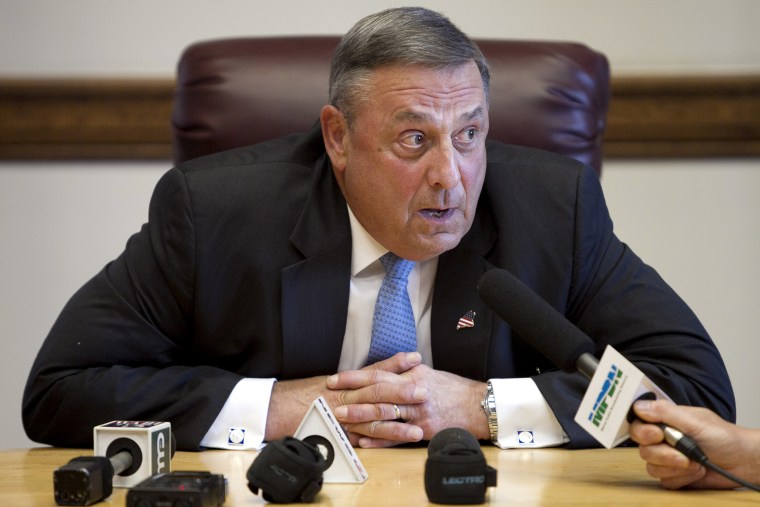Every state north of Virginia has either embraced Medicaid expansion or is working towards doing so -- except one.
The exception is Maine, where state Democrats have made the health care policy a top priority, but where Gov. Paul LePage (R) refuses to cooperate. It's left state lawmakers scrambling to find a veto-proof majority, but they're not having much luck.
About a week after it passed the Senate, but with less than the two-thirds support needed to muscle past a certain gubernatorial veto, the Maine House of Representatives on Tuesday will consider a bill aimed at expanding Medicaid to more than 70,000 low-income Mainers as part of the federal Affordable Care Act. [...] On paper, the bill addresses all the concerns Republican opponents of expansion have raised for two years.
This is a rather extreme example of policymakers who refuse to take "yes" for an answer. Republicans said, for example, that they want a temporary approval of Medicaid expansion that would expire and need reauthorization once federal support drops below 100%. Republicans also want an automatic rejection of the policy if Washington funding falls short of promise.
As if this weren't enough, according to the Bangor Daily News' report, GOP lawmakers also asked for outsourcing part of the program to managed-care organizations and the clearing out of a waiting list of Medicaid recipients awaiting in-home and community services.
Democrats agreed to literally all of the Republicans' conditions. And for their trouble, Dems picked up a whopping two GOP votes in the state Senate.
That's not bad, but it's not enough, either.
The compromise easily passed the state Senate, 22 to 13, but that's not enough to override LePage's inevitable veto.
It's also worth emphasizing that this isn't just about tens of thousands of low-income Mainers who'll be denied access to affordable coverage unless GOP opposition starts to budge. It's also an economic argument: a colleague reminded me this morning that 4 of the top 10 and 5 of the top 12 employers in the state are medical facilities and hospitals.
To reject Medicaid expansion, in other words, is to hurt many of the state's biggest employers (or "job creators," in the parlance).
To date, this hasn't proven persuasive to Maine Republicans, who insist on scuttling these health care efforts for reasons that only seem to make sense to them. That said, the state House debate is beginning in earnest today, and maybe it can help change some minds.
